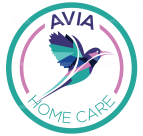The timing for starting exercise during physical therapy depends on several factors, including the nature of your injury or condition, the type of surgery (if applicable), your overall health, and the recommendations of your healthcare provider or physical therapist. It's essential to follow their guidance to ensure safe and effective rehabilitation.
In general, here are some considerations regarding when you can start exercising in physical therapy:
Post-operative recovery: If you've undergone surgery, your surgeon will provide specific guidelines regarding when you can begin exercising. In many cases, physical therapy starts shortly after surgery, once your surgeon determines it's safe to do so. Your physical therapist will design a personalized exercise program tailored to your post-operative needs and will gradually progress the intensity and complexity of exercises as you recover.
Acute injury or condition: If you're undergoing physical therapy for an acute injury or condition (such as a sprain, strain, or recent onset of pain), your therapist will initially focus on pain management, reducing inflammation, and protecting the injured area. Once these goals are achieved, they will introduce gentle exercises to improve mobility, strength, and function.
Chronic condition or rehabilitation: If you're receiving physical therapy for a chronic condition (such as arthritis, chronic pain, or a neurological disorder), your therapist may incorporate exercises into your treatment plan early on, depending on your tolerance and capabilities. These exercises may focus on improving flexibility, strength, balance, and overall functional abilities.
Individualized progression: Your physical therapist will assess your condition, monitor your progress, and adjust your exercise program accordingly. They will consider factors such as your pain levels, range of motion, muscle strength, and functional goals when determining the appropriate timing and type of exercises.
Home exercise program: In addition to in-clinic exercises, your therapist may prescribe a home exercise program to supplement your rehabilitation. These exercises are designed to be safe and manageable within your current abilities and are intended to facilitate your progress between therapy sessions.
It's crucial to communicate openly with your physical therapist about any concerns or limitations you may have regarding exercise. They will work with you to develop a comprehensive and individualized treatment plan that aligns with your goals and promotes a safe and effective recovery. Remember to follow their instructions carefully and to progress at a pace that is appropriate for your condition to avoid exacerbating symptoms or causing further injury.
